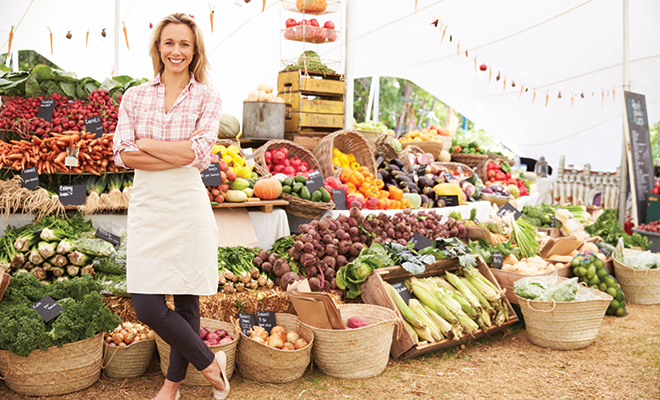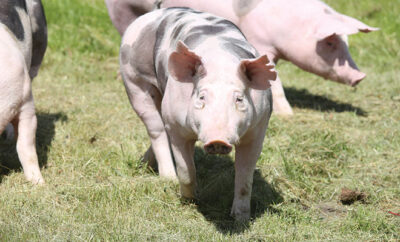
Organic or Engineered?
Over the past few years, when I shop for groceries I’ve gravitated to whole foods over processed foods. Whenever possible, I opt for organically grown products.
Why? Years ago, I tried a 90-day experiment. I ate an organic diet, with no dairy products and no wheat products. It was easy to stick with that food plan after the 90 days were up, mostly because I felt better than I had before. At my annual physical, my labs and annual exams were all measurably improved.
What’s not to love about buying organic? Farms that adhere to organic practices can decrease the amount of pesticides and pollutants that leach into ground water, which can make its way into the supply of drinking water. And organic food seems to taste better. That’s because plants grown without applications of pesticides and fertilizer have increased levels of vitamins and antioxidants. Studies have shown that higher antioxidant levels can enhance the aroma and taste of food.
I admit I am biased, based on my good experience. Yet I’ve been told that there is scientific proof that bioengineered foods and genetically modified organisms provide the same nutritional value as organic food. Some people assume that I must also be against vaccines, because I don’t seem to understand science. For the record, I do understand that engineered and GMO foods benefit farmers and consumers. These crops are resistant to insects and pesticides, which leads to an increase in crop production. This is important to consider as the world’s population grows. Although we can produce enough food to feed everyone, about 11 percent of the world’s population–over 800 million people–are undernourished because they don’t have access to food.
The safety of engineered and GMO crops has been chronicled in peer-reviewed literature that attests to positive economic and environmental impact on a global scale. When scientists insert the DNA of another organism, whether that DNA is animal, plant or virus, the benefits are immediately seen. Tomato plants have a longer shelf life with the addition of genetic material from flounder. Potatoes that have been altered with jellyfish genes will glow in the dark when they need water, taking the guesswork out of farming.
Yet opponents of this technology cite concerns about tinkering with the DNA of foods on a large scale. One major concern is what unintended consequences may occur over time. What if these changes contribute to creating allergens or other toxins? Many countries are unwilling to take any unknown risks. As a result, they ban or require mandatory labeling of GMO foods. Currently the United States does not require labeling of GMO foods. However, federal laws will require that labels identify GMO foods beginning in 2020.
Arguments for and against bioengineered foods played out in a most public setting almost two decades ago. In a series of annual lectures commissioned by the British Broadcasting Corporation, Prince Charles gave a speech that extolled the virtues of reconnecting with nature. He spoke of how organic farming and integrative medicine balance scientific advances with proven practices. His speech inspired a written response from Richard Dawkins, an evolutionary biologist at Oxford University, who wrote “An Open Letter to Prince Charles.” His passionate response cited how crucial scientific thinking is in discussions of world stewardship. Both arguments are well thought out and worth reading.
In the decades since this exchange between Prince Charles and Richard Dawkins, the issue is not yet resolved. Those who favor a return to sustainable, organic farming practices value the environment as well as good food. Others consider the use of GMOs as a powerful tool for mankind to produce more food. The growing global population could benefit from increased crop yields, improving health and reducing a strain on resources.
This leads to another sticking point in the debate about GMO food. GMO products are developed to turn a profit. Companies such as Monsanto collect technology fees, or royalties, for use of their GMO crop seeds, which farmers must purchase from Monsanto. In the past, farmers kept seed from their harvest or exchanged seed with other farmers. But this diversity of seeds will dwindle as more corporations control the seed markets around the globe.
The arguments about organic food versus bioengineered food are sure to continue in the years to come. Labeling foods will help consumers make decisions based on what they prefer. But your main concern in purchasing organic food may not be tied to bioengineered or GMO foods. If you’re more concerned about avoiding foods that have a high level of pesticides, check out the Environmental Working Group. Their website provides a wealth of information for consumers about health and environmental concerns. You can browse consumer guides and databases if you have questions about food, water, cosmetics, cleaning products or other concerns. ■
Sources: redbookmag.com, winterridgefoods.com and geneticliteracyproject.org.







